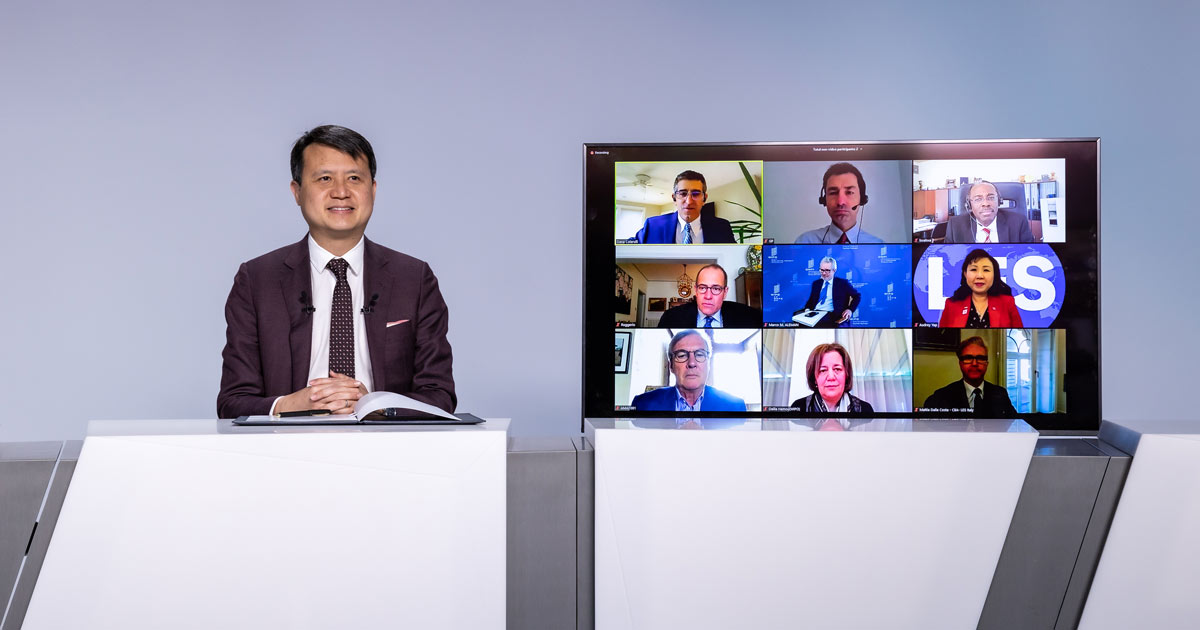Catherine Saez(フリーランスライター)
2019年後半、世界第3位の出版社であるアシェット・リーブル(Hachette Livre)は、Accessible Books Consortium(ABC)憲章の100番目の署名者となり、すべてのユーザー、特に目の不自由な人々または視覚障害のある人々が同社の商品に完全にアクセスできるようにすることを約束しました。

アシェット・リーブルは、視覚障害者がアクセス可能な電子書籍制作に最前線で取り組んでいます。2018年以降に出版されたすべての小説は「ボーン・アクセシブル(制作時からアクセシブル)」、つまり、視覚障害者が利用できる形式で制作されています。
アクセシビリティは、過去10年間、アシェット・リーブルの優先事項であり、アシェット・リーブルのデジタルアクセシビリティ標準に関する技術専門家であるLuc Audrain氏が先頭に立って取り組んできました。
商品およびサービスのアクセシビリティ要件に関する新しい欧州連合(EU)指令2019/882は、2025年までにEUの出版社および販売事業者が適用すべき新しい義務を規定しています。
Luc Audrain氏は、EU指令をヨーロッパの出版業界に必要な動きとして歓迎していますが、現在の標準、特に「EPUBアクセシビリティ1.0」を維持する必要があると警告しています。同氏は、新しい標準の策定が視覚障害者と出版社の両方にとって弊害をもたらすと示唆しています。
アシェット・リーブル社と社内でのあなたの役割について教えてください。
アシェット・リーブルは、約100の出版社名を抱えるグローバルな大手出版社です。アシェット・リーブルグループは、社会科学、自己啓発、観光や料理などに関する、小説、エッセイ、初等、中等、高等教育向けの書籍などの一般的な本を出版しています。また、スペイン、イギリス、アメリカに大規模な子会社を保有し、世界第3位の出版社です。
私はデジタルアクセシビリティ標準に関する技術専門家であり、今年3月末まで、アシェットで長年働いていました。現在、私はコンサルタントとして、国内、ヨーロッパ、国際レベルの電子書籍に関するさまざまな専門家間の標準化団体でアシェット・リーブルの代表を引き続き務めています。
アシェット社にとってアクセシビリティが重要なのはなぜですか?また、ABCに参加した理由について教えてください。
コンテンツを作成するとき、視覚障害者を含むすべての人々に使用してもらいたいと考えています。電子書籍の出版を開始した際には、印刷物とデジタル形式を同時に出版可能にする出版プロセスを設定し、印刷物の制作と並行して、デジタル制作チャンネルが実行されるようにしました。このように、アシェット・リーブルでは、視覚障害者は目の見える人と同じ立場で、電子書籍を通じて文化や知識にアクセスすることができます。
アシェットは、ABC憲章に定められていた全ての誓約をすでに満たしていたにも関わらず、私たちのアクセシビリティに対するコミットメントについては公に認識されていませんでした。ABC憲章に署名することで、その認識が得られました。
EU指令に話を戻しますが、そのEU指令の主な目的は何ですか?また、それはABCの目的をどのようにサポートしますか?
このEU指令は、すべての障害者のための社会的包摂と製品・サービスへのアクセスの原則に基づいています。この出版に関するEU指令の主な目的は、アクセシブルな電子書籍が市場で入手できることを保障することです。これは、アシェット・リーブルとABCのボーン・アクセシブル(制作時からアクセシブル)の方針と完全に一致しています。
業界全体の意識を高めていくということが大いに必要とされています。このEU指令は、出版社はアクセシビリティを真剣に受け止める必要があるという強いメッセージを提示しているため、価値あるものです。
このEU指令は、ボーン・アクセシブルな電子書籍の作成を奨励し、電子書籍のメタデータが広く利用できるように市場監視の原則を定めています。これは文化、そして視覚障害者のための文化と教育へのアクセスにとって非常に前向きな一歩です。
EU指令は、より多くの出版社がABCのようなイニシアチブに署名することを奨励すると思いますか?また、小規模な出版社はこの変化に対応できると思いますか?
私は、アシェットでの役割に加えて、アクセシブルな電子書籍の強力な支持者である欧州出版社連盟の技術専門家でもあります。この連盟は、EU指令が市場にインセンティブを提供するだけでなく、規制上の義務も確立すると考えています。多くの利害関係者は、行動を起こすためにその両方を必要としています。

このEU指令は、ヨーロッパの出版部門を揺るがすものであり、アクセシビリティをまだ受け入れていない出版社に行動を促し、この分野でのツールやプロセスの開発、考え方を養うことの促進に積極的に貢献すると思います。
小規模な出版社にとっては、特に、複雑で洗練されたページレイアウトや精巧なグラフィックと美的要素、説明が難しい複数の画像を含む複雑な本を制作している出版社では、EU指令の遂行において、より細心の注意を払う必要があります。たとえば、原生地域の旅行本へのアクセスに関連した課題を見てみましょう。多くの場合、写真について説明することは簡単ではありません。コミックやマンガについて、視覚障害者にアクセス可能にする場合にも同じ問題が発生します。
アクセシブルな電子書籍とは正確には何ですか?
アクセシブルな電子書籍は、通常の電子書籍と根本的に違いはありません。アクセシブルな電子書籍と通常の電子書籍のファイル、形式、コーディングは同じです。基本的に、目が見える一般の人向けのさまざまな技術的パラメータをファイルに含めることで、そのファイルは視覚障害のある読者がアクセスできる電子書籍になります。
電子書籍をアクセシブルにするために、私たちは国際レベルでの標準に関する多くの取り組みから恩恵を受けています。特に、ウェブテクノロジー標準は、インターネットのウェブサイトへのアクセスを保証しています。電子書籍には、同じくウェブテクノロジーに基づくEPUB形式を使用します。アシェットでは、EPUB標準の3番目のバージョンであるEPUB3を使用して、ボーン・アクセシブルな電子書籍を作成しています。
EU指令は、特別なフォーマットを必要とする人々にサービスを提供することを可能にするとともに、出版社にとって新しいビジネスチャンスを創出しますか?
はい、特に現在の電子書籍を発行するためのアクセシビリティ標準が採用されている場合、EU指令は、双方にとってメリットがあると思います。EU指令の採択後、欧州委員会が他のアクセシビリティ規則を課したり、アクセシブルな電子書籍を作成するために現在使用されているものとは異なるフォーマットを適用したりする場合、出版社と視覚障害者の双方が不利になります。
2018年以降、アシェット・リーブルによって出版されたすべての小説は、EPUB3標準および国際的なアクセシビリティ規則、特にDAISYコンソーシアムによって確立された規則に従って、ボーン・アクセシブルなものとして出版され続けています。
現在のところ、EU指令を実施するために使用しなければならない形式や技術標準については決定されていません。これらの疑問と調和のとれた欧州基準の適用の問題は、このEU指令がEU加盟国の国内法に適用されたときに発生するでしょう。
EU指令は出版社と販売事業者の業務にどのような影響を及ぼしますか?
現状では、このEU指令によって、新たな領域に入ることは要求されていません。オープンなファイル形式やアクセシビリティ標準、チュートリアルやトレーニングはすべて、広く利用可能です。アクセシビリティの原則を採用し、これらの標準とファイル形式を制作プロセスに組み込むだけでよいのです。
戦略的な観点から、出版社にとって重要な最初のステップは、アクセシビリティ専任の「社内リーダーまたは社内チーム」を設置することです。
EU指令は、すでに市場に出ている製品にも適用されますか?
これは難しい問題です。特に、EU指令で規定されているように、2025年6月までに市販の全ての電子書籍にアクセスできるようになることが期待されている場合はなおさらです。電子書籍のカタログには何百万冊もの電子書籍が含まれており、現状ではこれらの作品にアクセスすることはできません。既存の電子書籍カタログにアクセスできるようにすることは、非常に費用のかかる作業になります。
アシェットでは2018年からすべての小説をアクセシブルな形式で出版しているため、小説カタログのほとんどは2025年までにアクセシブルになりますが、2018年以前に出版された書籍にはアクセスできず、これは大きな弊害となります。
すでに市場に出回っている製品やサービスに関連してEU指令に定められた義務は、特に中小規模の出版社に強い影響を及ぼすでしょう。
アシェットはアクセシビリティに取り組み、ボーン・アクセシブルな電子書籍の出版を決定したことで、出版業界におけるアクセシビリティの重要な推進力となっています。アシェットのボーン・アクセシブルな電子書籍の制作は、フランスの他の出版部門の下請け業者に委託しています。このような下請け業者がアシェットのためのボーン・アクセシブルな電子書籍の制作方法を知っていれば、他の出版社に対しても同じことができます。
したがって、これにより、EU指令を実施する際に出版社へのプレッシャーがある程度緩和される可能性があります。しかし、一部の電子書籍、特に古いコレクションが2025年までにアクセシブルにならないことは明らかです。すでに市場に出回っている全ての電子書籍を変更し、アクセシブルにする必要がある場合、間違いなく、EUの出版社に対する財政支援が必要になります。
EU指令(第14条)で確立された例外は有用であり、出版業界に適合していると思いますか?
EU指令第14条は、作品をアクセシブルにすることが求められている事業者に不均衡な負担をかけないための条項です。これは非常に有用な例外であり、とりわけ、非常に複雑であることが多い特別な書籍を制作する出版社にとってはなおさらです。これらの作品がアクセシビリティ基準を満たしていることを確認するには費用がかかり、非常に小さな市場シェアに対して不釣り合いな労力を伴う可能性があります。
ただし、EU指令は、根拠のない理由では例外は認められないこととされています。EU指令で概説されている義務について、その義務の認識の欠如は理由として認められません。出版社は公正に対応しなければなりません。

出版社がEU指令を実施するための期限は現実的かつ実行可能だと思いますか?
EU指令により、将来のアクセシビリティ要件についての認識が即時に高まることになれば、2025年6月という期限は実現可能でしょう。しかし、ヨーロッパの出版社の多くは、アクセシビリティについて把握しておらす、DAISYコンソーシアムの標準やEPUB3形式についての知識もありません。
業界全体の意識を高めていくということが大いに必要とされています。このEU指令は、出版社はアクセシビリティを真剣に受け止める必要があり、アクセシビリティに関する厳格な要件を尊重する必要があるという強いメッセージを提示しているため、価値あるものです。
アクセシビリティに関する認識を高めるのは誰の役割ですか?
アクセシビリティについての認識を高めることは、政府と出版業界が共有すべき責任です。私としては、アクセシブルな出版を推進するパイオニアとして、フランスとヨーロッパの出版社に対してアクセシビリティに関するメッセージを発信し、出版社の義務について警告し、可能な限り技術サポートを提供する責任があると感じています。アクセシビリティとEU指令の要件を受け入れることに新しい基準や技術的問題を伴わないことを出版社が理解することが非常に重要です。出版社はプログラムに参加し、必要な知識を持っている下請け業者と協力を開始するだけでよいのです。
アシェットはアクセシビリティに取り組み、ボーン・アクセシブルな電子書籍の出版を決定したことで、出版業界におけるアクセシビリティの重要な推進力となっています。
政府にも果たすべき役割があります。たとえば、2018年にフランスでは、文化省がボーン・アクセシブルな出版のための戦略的計画を開始しました。さらに、サプライチェーン内のすべての関係者に、EU指令に準拠するために必要な情報を提供するための懸命な努力が続けられています。
2020年には、EU指令の影響に関する情報を広めることが重要な課題となるでしょう。これは、少なくともEU指令の大部分が弁護士の仕事であるためです。制作プロセス、技術的な問題、フォーマットについて、経験から直接得た知識を持つ業界関係者のほとんどは、この情報を拡散するプロセスに参加していません。
また、私は視覚障害者にEU指令について周知するための効果的な情報キャンペーンの必要性についても懸念しています。視覚障害者のコミュニティは、ボーン・アクセシブルな電子書籍が入手できることを知り、その利用方法についてトレーニングを受ける必要があります。このEU指令がアクセシブルな電子書籍の利用者数を増やすことにもつながることを望んでいます。



